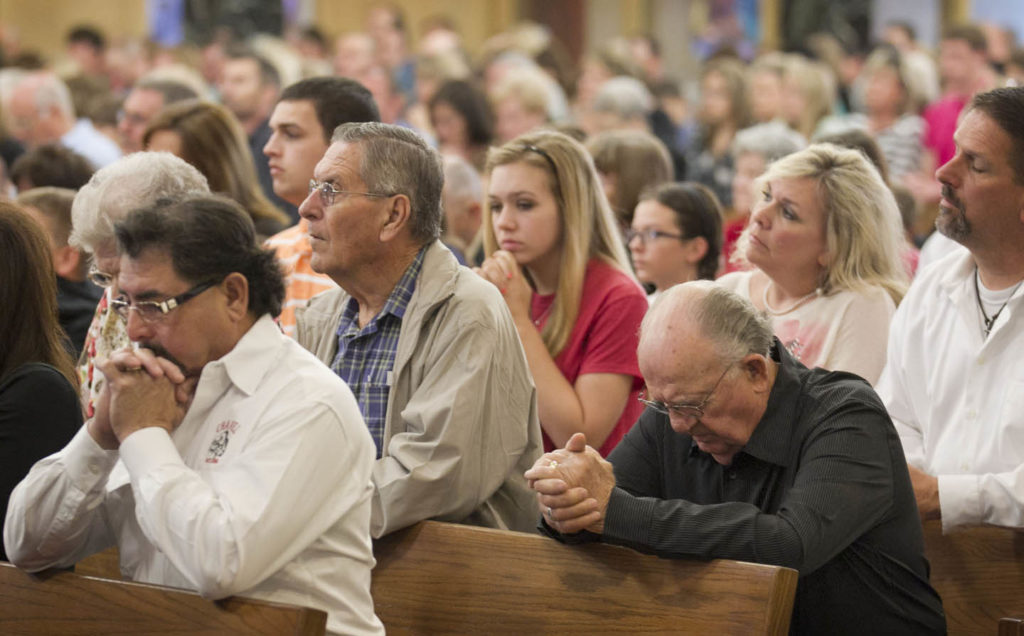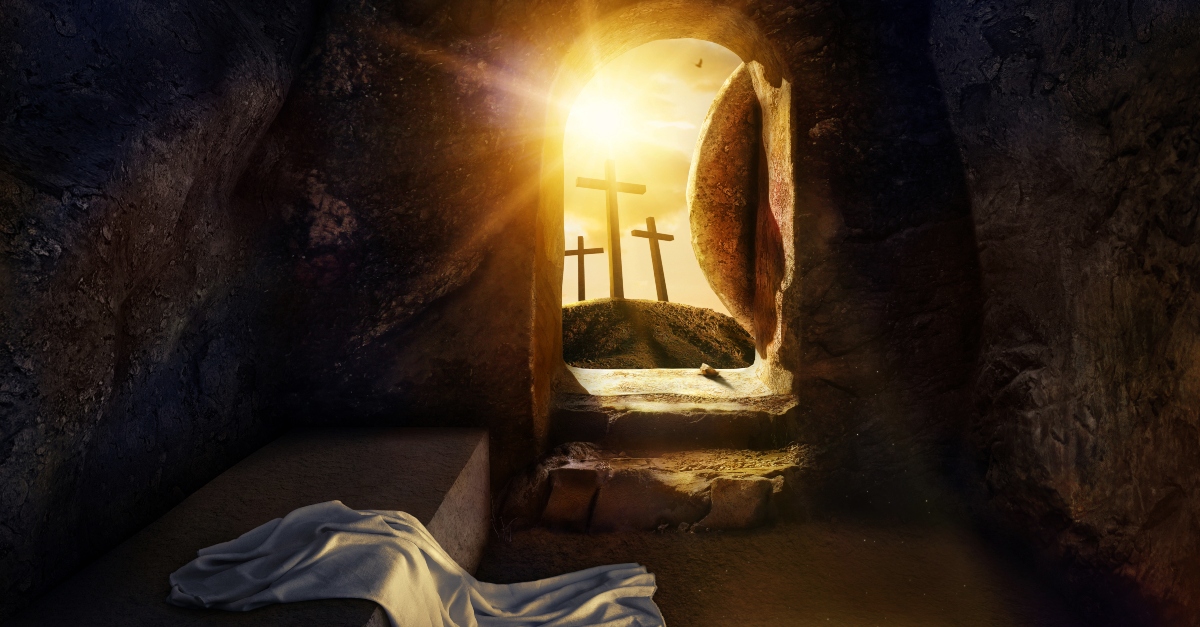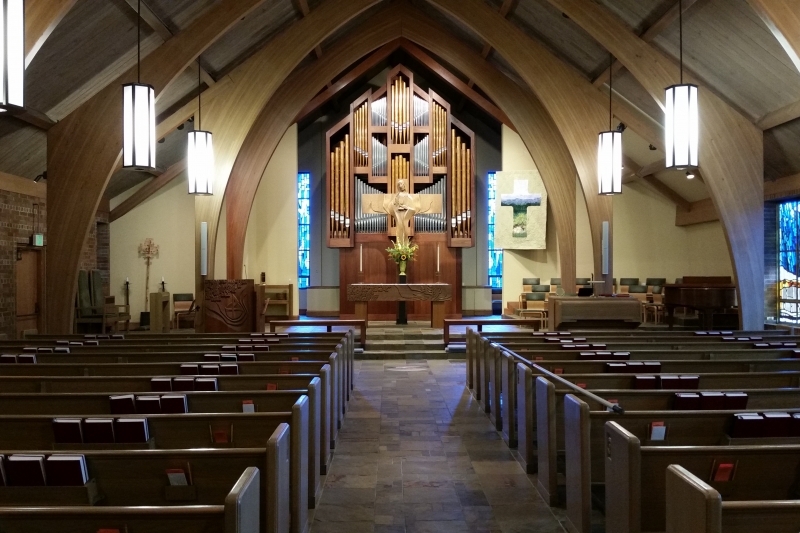
Introduction:
Sunday March 22, 2020 marked the first time in nearly 30 years of preaching that I preached to an empty sanctuary (four other people were present to help run the live-streaming equipment to broadcast the service online). Since then, a few have asked me about what affects this pandemic may have on Christianity (particularly as it relates to the temporary vacancy of church buildings).

Some may recall the little children’s Sunday School rhyme: “Here is the church”. The children would fold their hands and say: “Here’s the church, and here’s the steeple”. The fun part came when we would somehow twist our hands together with interlocked fingers and declare: “open the door and see all the people.”

The little rhyme taught that churches are not buildings but flesh-and-blood people. Churches are groups of believers that come together to sing songs to the Lord, hear the Bible preached, celebrate Jesus’ cross around the Lord’s table and baptize new converts. Child-like faith shines its brightest light in life’s darkest hours.
COVID-19, as horrible as it is, will pass. Consequently, the church-at-large will find itself stronger – not weaker. Furthermore, Christianity has the much-needed message of joy, forgiveness and hope. Today I bring this post as a way of preparing for Good Friday. I want to direct our attention to how Christianity finds fulfillment in empty things. Let’s note three of them.

1. Christianity proclaims fullness of joy in an empty tomb.
On the eve of his crucifixion, Jesus spoke these words John 16:22 -
“Therefore you too have grief now; but I will see you again, and your heart will rejoice, and no one will take your joy away from you.”
Jesus promised His disciples that they would see him again. How? Jesus made a dozen, physical, post-mortem appearances to skeptics and believers for forty-days following His resurrection. These appearances motivated Jesus’ followers to announce: “He is not here, He is risen!”
Christianity communicates a message of joy (that is, a sense of abiding confidence in God regardless of the circumstances). Jesus came as God-in-the-flesh to deal directly with evil, suffering and death. When Jesus asked His disciples whom they thought Him to be, Peter responded Mark 8:29
"And He continued by questioning them, 'But who do you say that I am?' Peter answered and said to Him, 'You are the Christ.”'
It was at that instant that Jesus told them what He was going to do, which never was separated from what He had told them about Himself in Mark 8:31
"And He began to teach them that the Son of Man must suffer many things and be rejected by the elders and the chief priests and the scribes, and be killed, and after three days rise again."
Joy in Jesus is due to the joy found in His conquering of death, Hell and the grave. Drawing joy from Jesus’ resurrection provides supernatural tools necessary to deal head-on with fear and anxiety.

2. Christianity’s fullness of forgiveness is due to an empty cross.
The crucifixion of Jesus of Nazareth is the most widely attested event of antiquity. 1 Yet, many Christians wear empty crosses and most church-buildings have crosses with no crucified Jesus upon them. Why? An empty cross declares the uniqueness of Jesus’ death for sinners. Peter, one of Jesus’ original followers (i.e. “disciples”) and “sent-ones” (i.e. “Apostles”), wrote in 1 Peter 3:18 –
“For Christ also died for sins once for all, the just for the unjust, so that He might bring us to God, having been put to death in the flesh, but made alive in the spirit.”
Another early Jesus-follower and Apostle, Paul, explained the achievement of Jesus’ crucifixion in Ephesians 1:7 -
“In Him we have redemption through His blood, the forgiveness of our trespasses, according to the riches of His grace.”
John, another of Jesus’ disciples and Apostles of Jesus expressed in John 3:16 –
“that whoever believes in Him shall not perish, but have eternal life.”
To experience God’s forgiveness at a time such as this grants strength to cope and help others. So, Christianity proclaims fullness of joy from an empty tomb and forgiveness because of an empty cross. How else does Christianity find fullness in empty things?

3. Christianity proclaims fullness of hope despite presently empty church buildings.
Good Friday (the day of Jesus’ crucifixion) points beyond itself to Easter Sunday and Jesus’ ascension into Heaven forty-days thereafter. Overwhelmingly, Jesus and His disciples expounded on how after His ascension into Heaven, there would come a future time in which He would return to earth.2 Jesus promised to have the Father send the Holy Spirit to strengthen His church and call people to believe on Him until His return (see John 14:26; 15:26; 16:7-11, 33; Titus 2:13).
Church buildings are great. However, Christianity’s temporary inability to meet in buildings doesn’t mean there is no fullness of hope! Christians can still encourage fellow co-workers bravely serving in essential areas like hospitals, supermarkets and factories. Others can send cards, make phone-calls or send encouraging messages through social media. Prayer for government, medical professionals and all impacted by COVID-19 is the supreme, unseen task of the church.
Those early disciples were gripped by fear between that first Good Friday and Easter Sunday. Yet, Jesus’ Good Friday suffering led to His Easter victory over death. Fear gave away to hope. As a final thought to you, dear reader: trust in Jesus, who can give you strength in this time and for times to come.
Endnotes:
1. According to Dr. Norman Geisler's book "Christian Apologetics" (ppgs 322-325), sources outside the New Testament that attest to the crucifixion include Roman historians such as Tacitus (A.D. 55-117), the Jewish historian Josephus in Book 18 of his work "Antiquities" and the Roman Historian Suetonius, just to name a few. I count at least a dozen references outside the New Testament. The four Gospels, Acts and 1 Corinthians 15:1-10 are counted by historians of all stripes as the primary source documents for Jesus' crucifixion.
2. Luke records the words of Jesus ascending into Heaven before His disciples in Acts 1:9-11 "And after He had said these things, He was lifted up while they were looking on, and a cloud received Him out of their sight. 10 And as they were gazing intently into the sky while He was going, behold, two men in white clothing stood beside them. 11 They also said, “Men of Galilee, why do you stand looking into the sky? This Jesus, who has been taken up from you into heaven, will come in just the same way as you have watched Him go into heaven.”
The Apostle Peter would preach ten days later about the significance of Jesus' ascension, and how it tied-in with His crucifixion and resurrection in Acts 2:32-36 - This Jesus God raised up again, to which we are all witnesses. 33 Therefore having been exalted to the right hand of God, and having received from the Father the promise of the Holy Spirit, He has poured forth this which you both see and hear. 34 For it was not David who ascended into heaven, but he himself says:
‘The Lord said to my Lord,
“Sit at My right hand,
35 Until I make Your enemies a footstool for Your feet.”’
36 Therefore let all the house of Israel know for certain that God has made Him both Lord and Christ—this Jesus whom you crucified.”
As a final thought in this end note, the Apostle Paul wrote in Philippians 3:20-21 of how Christ's ascension and soon return provide Christians with unshakable hope - "For our citizenship is in heaven, from which also we eagerly wait for a Savior, the Lord Jesus Christ; 21 who will transform the body of our humble state into conformity with the body of His glory, by the exertion of the power that He has even to subject all things to Himself."
